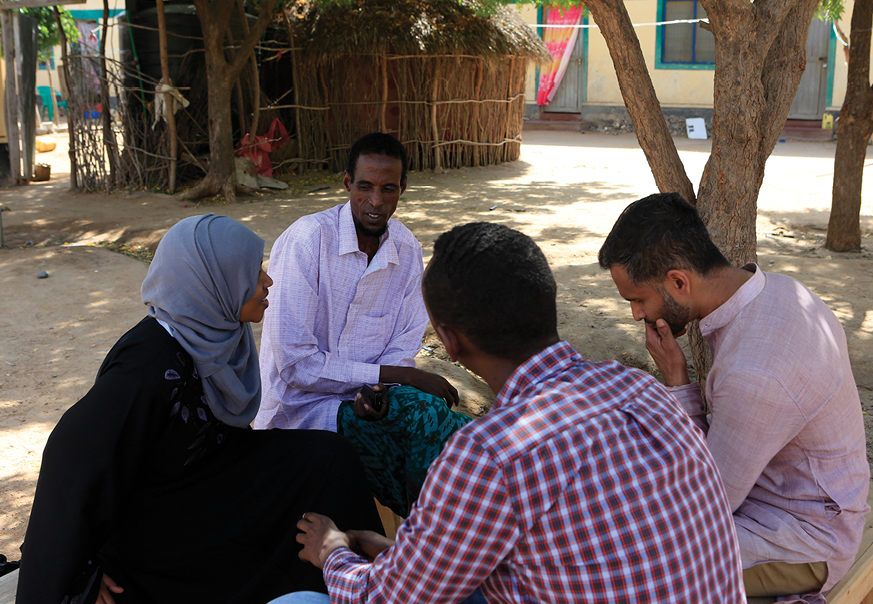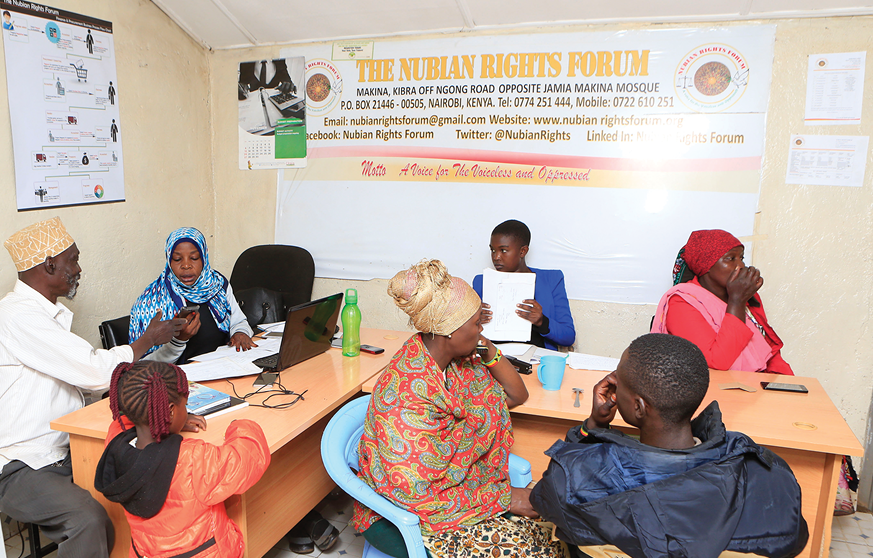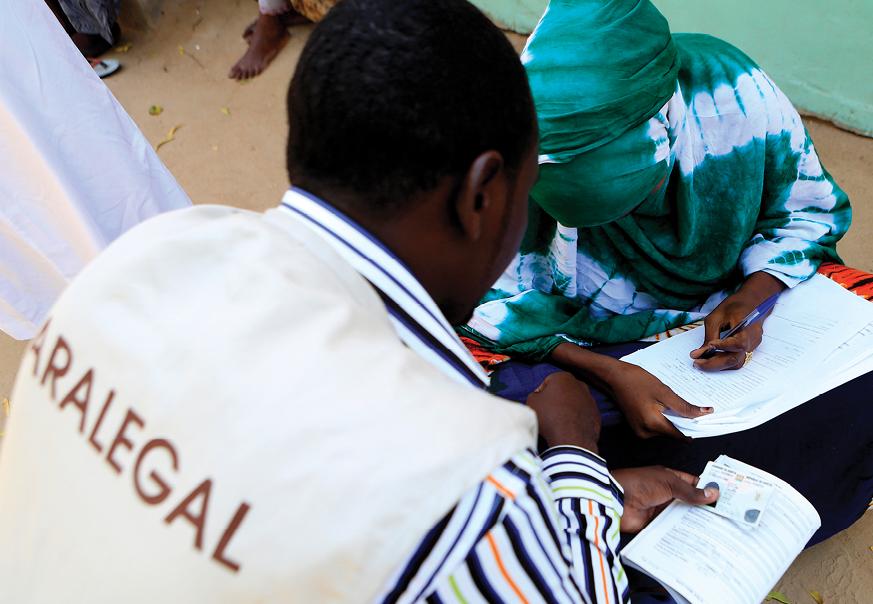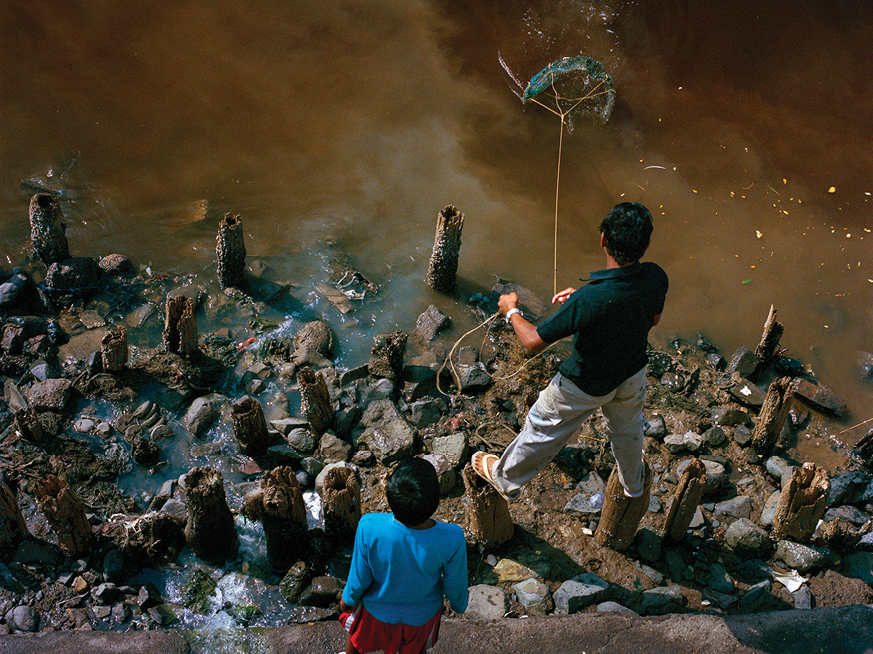- Home
- Media Kit
- MediaJet
- Current Issue
- Past Issues
- Ad Specs-Submission
- Ad Print Settings
- Reprints (PDF)
- Photo Specifications (PDF)
- Contact Us
![]()
ONLINE
![]()
ONLINE

Advancing Justice
Editors’ Note
Vivek Maru started Namati in 2011. From 2003 to 2007, Maru co-founded and co-directed the Sierra Leonean organization, Timap for Justice, which has been recognized by the International Crisis Group, Transparency International, and President Jimmy Carter for advancing justice in the context of a weak state and a plural legal system. From 2008 to 2011, he served as senior counsel in the Justice Reform Group of the World Bank. In 1997-1998 he lived in a hut of dung and sticks in a village in Kutch, his native place, working on rainwater conservation and girls’ education with two grassroots development organizations – Sahjeevan and Kutch Mahila Vikas Sanghathan. He co-teaches the Legal Empowerment Leadership Course, which is co-hosted by Central European University and the Bernstein Center for Human Rights at New York University School of Law. Maru is co-author of Community Paralegals and the Pursuit of Justice (Cambridge University Press). His TED talk, “How to Put the Power of Law in People’s Hands,” has been viewed over a million times. Maru received the Pioneer Award from the North American South Asian Bar Association in 2008. He was named an Ashoka Fellow in 2014 and a “legal rebel” by the American Bar Association in 2015. He, Namati, and the Legal Empowerment Network received the Skoll Award for Social Entrepreneurship in 2016. In 2017, the Schwab Foundation and the World Economic Forum named Maru and Sonkita Conteh, director of Namati Sierra Leone, two of its Social Entrepreneurs of the Year. He serves on the boards of Renew New England, which is pursuing a Green New Deal across that region, and the Constitutional Accountability Center, which is focused on fulfilling the progressive promise of the U.S. Constitution. He serves on advisory councils for the Climate Justice Resilience Fund and the evaluation firm ID Insight. Vivek was an affiliate expert with the UN Commission on Legal Empowerment and is a member of the global Task Force on Justice. He graduated from Harvard College, magna cum laude, and Yale Law School.
Institution Brief
Namati’s (namati.org) mission is to advance social and environmental justice by building a movement of people who know, use, and shape the law. Namati and its partners train and deploy community paralegals to take on some of the greatest injustices of the times. Together with the communities it serves, it strives to translate the lessons from grassroots experience into positive, large-scale changes to laws and systems. Namati also convenes the Legal Empowerment Network – over 2,500 groups and 10,000 individuals from every part of the world. Members are learning from one another, advocating together, and joining forces to bring justice everywhere.

Vivek Maru discusses a citizenship case
with partners in Garissa, Kenya
How do you define Namati’s mission and purpose?
In the face of deep inequality and climate emergency, Namati and our partners advance justice by combining the power of people with the power of law. We’ve built deeply rooted teams in six countries: Myanmar, India, Mozambique, Kenya, Sierra Leone and the United States. In each place, we’re supporting communities to take on immense challenges, including environmental destruction, ethnic discrimination and broken systems for delivering essential services.
Globally, Namati convenes the Legal Empowerment Network, the largest group of justice organizations in the world, with 2800+ groups, across 170+ countries. Collectively, our community is striving to make justice a reality for everyone, everywhere.
What does it mean to advance justice by combining the power of people with the power of law?
Let me tell you about a woman I know. I’ll call her Ziya in order to protect her safety. Ziya is a single mom and a house cleaner who has lived in Nairobi, Kenya all her life, but she spent five years trying and failing to secure a Kenyan ID card. Most Kenyans give hardly a thought to getting their national ID cards; they fill out a form when they turn 18 and receive their card in a month. But for Kenyans from specific tribes – most of them Muslim, totaling 5 million people – getting an ID is a nightmare. People from these tribes have to wait months to go before a special vetting committee. They get asked to produce extra supporting documents – even documents from their grandparents or great-grandparents – and the process can take years. Without an ID, you can’t apply for a job, you can’t get a bank loan, you can’t enroll in higher education. You are excluded from society.
“Globally, Namati convenes the Legal Empowerment Network, the largest group of justice organizations in
the world, with 2800+ groups, across 170+ countries. Collectively, our community is striving to make
justice
a reality for everyone, everywhere.”
Ziya is from the Nubian community, one of the tribes subject to vetting. She applied for an ID as soon as she turned 18. She didn’t get an appointment with a vetting committee till the following year; when she did, the committee rejected her. She tried to get additional documents from the Civil Registry, but they rejected her as well. Because she wasn’t able to get an ID for herself, she couldn’t obtain a birth certificate for her son, and without a birth certificate, she couldn’t enroll him in preschool. No ID also meant she couldn’t apply for a job. Even cleaning apartments was hard – security guards often demanded to see an ID before letting her into a building.
We work with grassroots groups from communities subject to vetting – like the Nubian Rights Forum, Haki na Sheria, and Haki Centre – to train “community paralegals.” They are organizers who have knowledge of law and who help their neighbors to navigate an unjust system. Paralegals across Kenya have supported over 15,000 people to track down supporting documentation, appear before vetting committees and successfully secure ID documents.
Ziya is one of them. A pair of paralegals helped her gather additional evidence and prepare for another appearance before the vetting committee. This time, she prevailed, and when she found out, she wept. She said she felt like a Kenyan for the first time.
Our goal in Kenya is not to provide paralegal assistance to all 5 million people who face discrimination. Our goal is to end discrimination altogether. Today, people like Ziya, who have managed to make their way through the system, and learned about law in the process, are leading a movement for a citizenship system that treats all Kenyans equally. Kenya is currently aiming to transition from an analog ID system to a digital one. In 2020, our partners won a landmark court judgment – the first of its kind in the world – requiring that the new, digital ID system remedies historic discrimination rather than reproducing it.
You can learn more about Ziya’s story, the court judgment, and the importance of addressing discrimination in the context of digital ID systems in an essay I co-wrote that was published in WIRED.

Paralegals meet with community members
at the Nubian Rights Forum in Nairobi, Kenya
Much of your work focuses on environmental injustice. What do local struggles against pollution and land grabs have to do with the global climate crisis?
Our climate crisis is a justice crisis. Everywhere I go, the harms causing climate change, including deforestation, fossil fuel extraction and pollution, are concentrated in communities with less wealth and power, and in communities who face discrimination. Organizer and farmer Hop Hopkins puts it this way: “You can’t have climate change without sacrifice zones, and you can’t have sacrifice zones without disposable people.” Finding a way through this crisis is going to take more than better technology and top-down commitments to reduce emissions. We need to confront the underlying injustice that makes the destruction possible.
We can do that by combining the power of people with the power of law. In India, where, according to the government’s own figures, rates of environmental noncompliance are as high as 57 percent, paralegals and communities working with the Centre for Policy Research have achieved remedies in over 120 cases across four states: stopping a coal plant from unlawfully encroaching on community grazing land, for example, and ensuring that a bauxite refinery implements compulsory measures to mitigate air emissions.
In the U.S., Namati co-convenes a regional environmental justice coalition across Delaware, Maryland, Washington, D.C., and Virginia. Communities across the region are using law and organizing to take on violations by trash incinerators, factory farms, and mines, among others. They are drawing on those grassroots struggles to demand legislation that would give them a greater say in permitting decisions, and that would ensure that federal monies for green infrastructure reach the people who need those investments the most.
This is a path that everyone can walk: Identify an injustice near you, environmental or otherwise. Are there people you know working without adequate safety gear? Is the river flowing through your town being poisoned? Get to know the people most affected. Find out what the rules say. Come together and use those rules, imperfect as they may be, to pursue a solution. And bring that experience into wider movements to make the rules more just. Know law, use law, shape law. It’s how we deepen democracy.

A paralegal assists a community member with
an ID application in Kenya
You’ve taken an unusual path since Harvard College and Yale Law School. What led you to this work?
My grandfather was a Gandhian who served multiple jail sentences for his activism during India’s independence movement. Listening to his stories, I glimpsed a timeless and beautiful struggle. I started law school at the age of 23, but I almost dropped out during my first year. The law seemed distant from the ideas and real-life struggles that inspired me. Two classmates convinced me to hang in there. I graduated, clerked for a judge on the Ninth Circuit Court of Appeals, and worked for a year at Human Rights Watch. Then, in 2003, I moved to Sierra Leone at the invitation of several local human rights groups there, and with sponsorship from the Open Society Foundation.
It was the year after the end of an 11-year civil war, which ravaged institutions and led to the deaths of 50,000 people. Sierra Leoneans agreed that it was injustice, and arbitrariness in governance, that had led to the war in the first place. The groups that invited me wanted to find a way to help people address injustice in their daily lives as a way of rebuilding the country, and as a way of preventing a return to conflict.
How to do so was an open question. There were 100 lawyers total in the country at the time, 90 of whom lived in the capital, Freetown. Like many countries, Sierra Leone has a dual legal system, with customary institutions based on tradition working alongside formal ones inherited from an empire, in this case the British. Most people use the customary institutions, and lawyers aren’t allowed to stand up in those at all, so a lawyer-focused model would have been unworkable.
Instead, we took inspiration from South Africa, where community paralegals first emerged in the 1950s as part of the struggle against apartheid. The paralegals I worked with in Sierra Leone helped me see how it’s possible to squeeze justice out of even broken systems, and how the law can be inverted – from an elite domain, often designed to oppress – into something that ordinary people can understand, use, and shape. Their work pointed to a way of pursuing justice that is both visionary and grounded. I’ve been obsessed ever since.

Two boys fish their cricket ball out of the heavily polluted
Daman River in Gujarat, India, one of the states
where paralegals working with the Centre for Policy
Research-Namati team are active
You were part of an international Justice Task Force, co-chaired by ministers from Argentina, Sierra Leone, and the Netherlands, which found that 5.1 billion people lack basic access to justice. One of the key barriers the Task Force identified was a lack of financing for bottom-up efforts to secure justice. Will you highlight the work of the Task Force?
Our task force drew on data from over 100 countries. The scale of the problem is horrific, but there are solutions that work. The task force drew on a large body of evidence to conclude that grassroots legal empowerment efforts can be a powerful catalyst to remedy violations of rights and to build fairer, more effective systems of governance. And yet work of that kind has been systematically underfunded, perhaps forever. Part of the reason is that grassroots justice efforts inherently challenge imbalances of power, and so those in power are wary. But I do see today, in many countries, greater recognition that we won’t tackle any of our enormous challenges, from climate change to violence to poverty, if we don’t take on injustice head-on.
In 2021, we launched with partners the Legal Empowerment Fund, with the goal of investing $100 million in grassroots efforts to advance justice by combining the power of law with the power of people. We have raised $20 million so far; we hope that more governments and philanthropists will join in.![]()